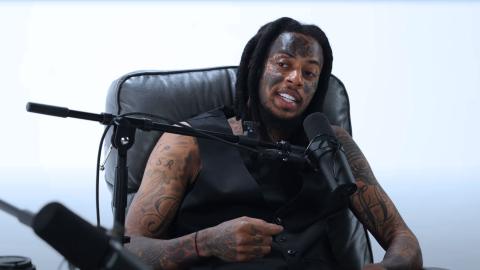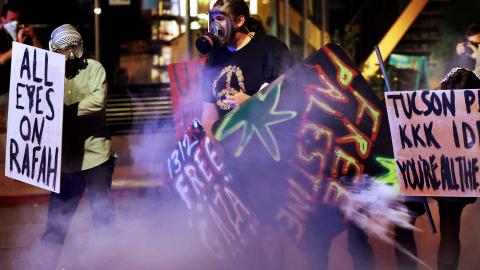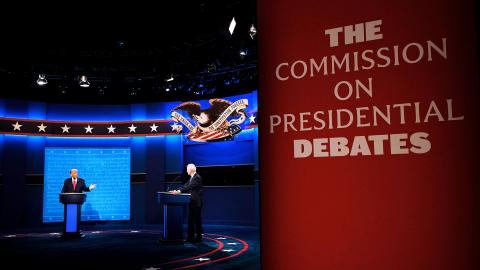Reagan Conservatism, Trump Populism and the Future of the GOP: What's Next?
The last time Republicans debated in Simi Valley California at the Ronald Reagan Presidential Library, participants included then-candidate Donald Trump. He won't be on the stage for the presidential debate this time around, and he's also one of the main reasons the GOP is no longer considered the party of Reagan.
"Today, a populist movement is rising in the Republican Party," Mike Pence recently said. The former vice president and presidential candidate prefers a return to the days of 'Reagan Conservatism' and now opposes Trump's version of the GOP.
"In the days to come, will we be the party of conservatism or will we follow the siren song of populism unmoored to conservative principles," Pence said in a speech. "The future of this movement and this party belongs to one or the other, not both."
Make no mistake: Donald Trump has changed the Republican Party, something retiring Senator Mitt Romney regrets.
"There's no question that the Republican Party today is in the shadow of Donald Trump," Romney recently told reporters. "He is the leader of the greatest portion of the Republican Party. It's a populist, I believe, demagogue portion of the party. I represent a small wing of the party if you will. I call it the 'wise wing' of the Republican Party and I don't believe we're going away. I think ultimately we'll see a resurgence and come back into leadership of the party."
However, that doesn't seem likely because while Trump gets the credit, this version of the GOP has been developing over decades, and the statistics bear it out.
Coming out of Reagan and into the Bush years, 62 percent of Republicans preferred to reduce the debt rather than protect entitlements. Now only 29 percent feel that way.
Back then, 53 percent felt America should be more active abroad. But after attempts at nation-building and the post 9/11 wars in Iraq and Afghanistan, Republicans became fed up and that number is much lower today, totaling 24 percent.
Steve Toth, a state senator from Texas has seen the foreign policy change throughout the years. "It's been aided by 24/7 news coverage that has brought a lot of coverage, the industrial war complex that exists in Washington, D.C. in the Uniparty, and I think people are just sick and tired of it."
Plus, you add in the culture wars which are far worse today than at any time in modern American history. "Ronald Reagan did not have to deal with Critical Race Theory," Toth tells CBN News. "Ronald Reagan didn't have to deal with a covert transitioning of our children or public schools from male to female or female to male. Ronald Reagan didn't have to deal with abortion through not 9 months, but 10 months. And so there is an outrage in the United States that is calling for a new kind of politician, a new kind of office holder that is not going to talk a good talk, but is actually going to have to deliver some results."
Enter Donald Trump marching toward a more blue-collar, populist party that's also operating in a very different political environment.
The days of working across the aisle are almost non-existent. Long gone are the days when Reagan and then Democrat House Speaker Tip O'Neil shared a cozy personal relationship. In those days, Reagan and O'Neil agreed that politics took a back seat to friendship after 6 p.m.
But along with cordial relationships disappearing and trust in the federal government eroding, pessimism seems to now rule the day. While Reagan focused on the "shining city on a hill," today 40 percent of Americans feel Republican leaders are mostly pessimistic when they talk about the country's future.
To be clear, Reagan and Trump have two similar core underpinnings: championing traditional family policies with a mantra of less government.
"I believe Ronald Reagan would have attacked these issues, the same way that Donald Trump has," Steve Toth says. "It would have been a little bit more nuanced. It would have been a little friendlier but he would have attacked it nonetheless the exact same way."
So what are we to make of the GOP's future? Will it be a full-on embrace of populism or something else?
"I think when you look at these candidates you see them all recognize that the future of the Right, the future of the Republican Party is going to be some uneasy, sometimes complimentary synthesis of Reagan conservatism and Trump populism," says Matthew Continetti, author of the book, The Right: The Hundred Year War for American Conservatism.
What that exactly looks like is anyone's guess.



